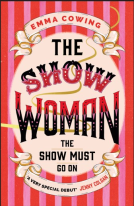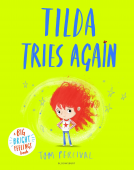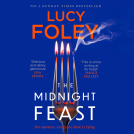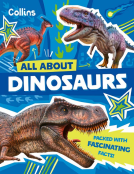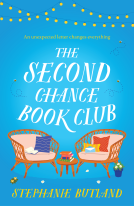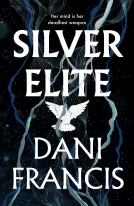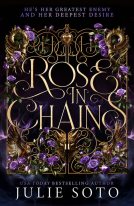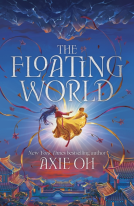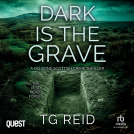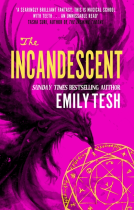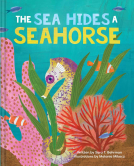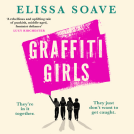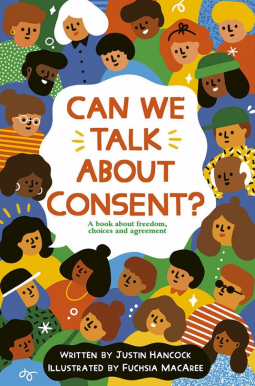
Can We Talk About Consent?
A book about freedom, choices, and agreement
by Justin Hancock
This title was previously available on NetGalley and is now archived.
Send NetGalley books directly to your Kindle or Kindle app
1
To read on a Kindle or Kindle app, please add kindle@netgalley.com as an approved email address to receive files in your Amazon account. Click here for step-by-step instructions.
2
Also find your Kindle email address within your Amazon account, and enter it here.
Pub Date 5 Jan 2021 | Archive Date 12 Jan 2021
Quarto Publishing Group – Frances Lincoln Children's Books | Frances Lincoln Children's Books
Talking about this book? Use #CanWeTalkAboutConsent #NetGalley. More hashtag tips!
Description
What exactly is consent? Why does it matter? How can you negotiate your place in the world while respecting other people’s boundaries, and have them respect yours?
Can We Talk About Consent? breaks down the basics of how to have healthy relationships in every aspect of life for readers aged 14 years and older.
Consent is a powerful word, but not everyone understands exactly what it means. This clearly written, stylishly illustrated guide explains clearly what consent means and why it matters—for all of us.
With honest explanations by experienced sex and relationships educator Justin Hancock, children will learn how consent is a vital part of how we connect with ourselves and our self-esteem, the people close to us and the wider world.
Readers will uncover how to develop and maintain relationships, how to manage and avoid negative relationships, and will learn more about equality and respect.
Covers a broad range of topics, including: how we greet each other; how to choose things for ourselves; how we say no to things we don't want to do; communicating and respecting choices in sexual relationships; the factors that can affect a person's ability to choose; and how to empower other people by giving them consent.
Colorful, striking illustrations by Fuchsia MacAree help children relate what they read to the world around them.
This guide to consent will set young people on the path to a lifetime of healthy relationships.
Available Editions
| EDITION | Paperback |
| ISBN | 9780711256545 |
| PRICE | £8.99 (GBP) |
Featured Reviews
"Can We Talk About Consent?" is an extremely valuable resource aimed at young people aged 14 and over. I loved everything about it! The language is accessible, for starters. Justin Hancock kicks us off with a legal definition of consent before presenting different scenarios and analogies. He also explicitly invites the reader to decide for themself whether to continue reading. Hancock uses plain language to discuss tricky issues such as individual and collective agency, power and privilege and provides a catalyst for young people to have conversations about consent.
Although this is a book about so much more than consent alone. It's about our ability to make choices and how to be assertive, whilst acknowledging that everyone has different preferences, sexually and otherwise. For me, the section on "Negotiating A Greeting" normalises what would often be viewed as an ASD response and I found the concept of bringing that into the mainstream refreshing.
Hancock also explores peer pressure, drugs and alcohol, activism and politics. It is made clear throughout that the section on sex can be skipped if desired.
I thought that the Toni Morrison quote was beautifully utilised. Towards the end there are several practical activities which lay out the framework for decision-making in a simple (but not patronising) format. Just when you think it can't possibly get any better, there is a Glossary, Resources section plus signposting for various national services. Justin Hancock really has thought of everything! A particular highlight for me was the inclusion of Should Stories as I hadn't heard the term before but it makes such perfect sense.
Fuchsia MacAree's illustrations throughout the book are vibrant, colourful and diverse bringing the text to life brilliantly.
 Reviewer 577067
Reviewer 577067
This book is such a valuable addition to the sex education library. I am 30, and I don't remember learning anything about consent past "only do things you feel comfortable with" which put all the emphasis on me. This book has so much going for it and I would recommend ANYONE who is embarking on sex education with their children picks this up.
This isn't a manual on how to do it, and how not to get pregnant as most other books seem to be. With graphics explained through things such as picking a chocolate bar this explores all the nuances of sex and sexual experience while not confusing the message of what consent is.
 Cathy P, Librarian
Cathy P, Librarian
This was an extremely accessible and timely book concerning consent for children and young adults. It handles the issue both lightly and with sensitivity, considering a wide range of situations where we need to consider consent, not just sex, but in our everyday relationships. It's well written, engaging and very informative with plenty to both think about and discuss.
Consent is an incredibly important topic, and one that should be taught to all people, especially in schools where children and teens develop interpersonal skills that will stick with them for the rest of their lives. Unfortunately, I can't remember consent ever really being talked about when I was in school. Yes, there was the basics like 'rape is bad', but that's really just the tip of the iceberg when it comes to consent, and doesn't really cover how broad and important an issue it is. This is something that Can We Talk About Consent? is trying to address.
The book is aimed at the teen and young adult market, having been marked as suitable for 15+, and its written in such a way that it feels really easy to pick up and understand, and seems like the kind of book that would fit well in any classroom or school library.
Justin Hancock has tried to make the topic as easy to understand as he can, and one of the ways that's been done is to relate consent to everyday scenarios and situations that young people will recognise. Not only does this help to make consent easier to talk about, as it's often included in conversations about sex, but also illustrates how consent matters in situations that don't have anything to do with sex. There's examples in the book how things as simple as greeting people ties into consent, and how the choice of shaking someones hand, giving them a hug, or not touching them at all falls into the conversation about consent, and how simple everyday interactions can force people into scenarios that they don't feel comfortable in.
The book acknowledges these situations in a number of ways, and often shows readers 'should stories', showing how things should be, but how that doesn't always line up with peoples lived experiences. These are incredibly useful moments, and helps to break down what could be something of an intimidating subject.
One of the things about the book that doesn't quite work for me, however, was the illustrations that accompanied the text. Now, there was nothing wrong with the quality of the artwork, and it was very well done, but the bright. bold, and sometimes simplistic images sometimes made the book feel like it was being aimed at a much younger audience than teens. There were times where the images bordered of humerus, and whilst this might make some people feel more relaxed about the subject they did sometimes make me feel like not enough weight was being given over to what's an incredibly important issue. And sadly I can't help but feel that the illustrations will put adult readers off the book, an audience who probably never had consent covered with them when they were the age of the book's target audience, and who could really benefit from this book too.
Despite these few small issues I found the book to be incredibly well informed, and it make a big and sometimes intimidating topic easy to understand. Like I said before, I can easily see this book being used as a teaching resource, and I think that that's where it will excel for sure.
The publisher kindly offered me a reader copy via NetGalley. Yet, this is an honest review of the book expressing my own opinion.
I absolutely loved this book. As a future English teacher, I want to have this book in my hands in every classroom and work with it and the kids. This is noted a Children's nonfiction, but it would be extremely beneficial for adults. Adults may need more background information and such, but the author delves into things that I--an adult-- haven't thought about.
What I loved the most was that the author talks about power dynamics and interesectionality. Consent is about being able and free to choose, and that has resonated with me. Why do we say yes? To please ourselves or someone else? Is is the same for others who haven't had the same privilege and freedom?
The author also talks about nonconsensual actions and provides a list of people to talk to. It was delicately done. But I felt like it was too delicately as in the author could have delved into it more. The more discourse happens beforehand, the more it can prevent from bad things to happen.
The illustrations were too distracting and took too much space in my e-ARC. It is Children's Nonfiction, but I found the illustrations took much from the actual words, and the words were too important to miss. Furthermore, the author has a chapter about "isms" which I found well done and necessary. I really liked that it was included. But in my opinion, it was a miss not to include Islamophobia and discrimination against people with a different religion. Not when women who wear hijab or niqab can get verbally or physically assaulted for wearing hijab or niqab. Not when there's such antisemitism in political parties in the author's country. It was a very important miss.
Alas, no book can be perfect, and in my opinion, dialog about consent is of utmost importance, and this book can be easily used by educators and parents for their children, but fellow adults, don't dismiss it too soon. I think you'll learn something, too, if you read it. But it's up to YOU.
4 stars – ⭐⭐⭐⭐
Author: Justin Hancock
Publisher: Quarto Publishing Group – Frances Lincoln Children's Books
This is such an important book for young teens to read! I also believe younger children should be taught about consent from a young age, as I feel it should be something they should have drummed into them so to speak. This book is too long for younger children though so Is therefore more appropriate for older children.
Great book though that gave lots of different scenarios about where consent is important.
I received a copy of this from the publisher Frances Lincoln Children’s Books, and Netgalley in return for an honest review.
I requested this one when a friend of mine told me about it when we were having a conversation about consent and how to bring up the subject with my 12 year old daughter. I’m glad she showed me this book as it is quite good.The book is not only about sexual consent but consent in all different manner of things. It starts asking you if you are happy to continue the book, which at first I laughed at but then the more the book goes on, I realised it’s actually a great way to get any young person who is reading the book, to understand consent is around so much in our everyday lives.
There is a section on sexual consent, and it does warn you beforehand so you know whether you want to continue on, or skip that chapter.
The author has written this book well, and uses pizza a lot as a reference, having to house from all the different pizzas on a menu etc. It sounds weird but makes sense when you read it!
I’d recommend this to people looking to understand consent, or even like me, just wondering on how to talk about it with a child
 Amna I, Reviewer
Amna I, Reviewer
A wonderful book!
The author has managed to highlight such an important and vast topic in very simple and accessible terms. As a 20-something person reading this, it warms my heart to know that a resource such as this exists that can be used to start the conversation about self-agency with younger people, unlike the lack of opportunities I myself faced as a teenager or even now as an adult.
A person from any age group could read this and they would find that it is a pretty good way to cover the basics regarding consent that we all wish we knew more about. The illustrations really enhance the reading experience and I was very impressed with the breakdown of topics (agency, greetings, sex) which helped convey the author's messages much more conveniently. The 'activity' section at the end was something I felt would be super helpful for the younger target audience of the book.
Definitely a recommended read!
Readers who liked this book also liked:
Sara T. Behrman
Children's Fiction, Outdoors & Nature, Parenting & Families
